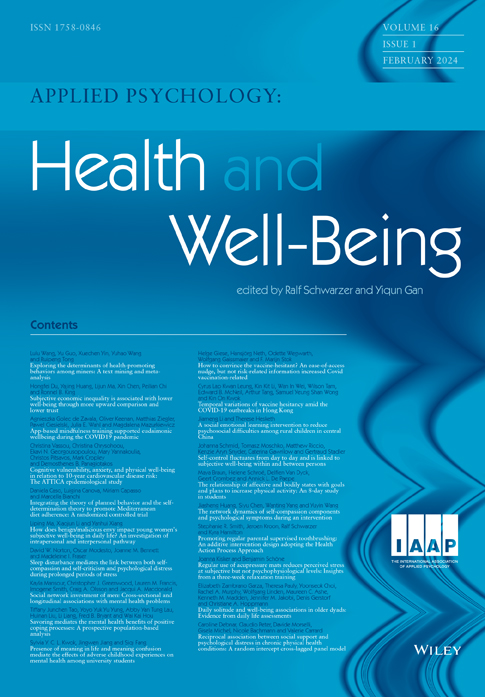Interventions targeting social media use show mixed results in improving well-being outcomes, particularly for persons with problematic forms of smartphone use. This study assesses the effectiveness of an intervention app in enhancing well-being outcomes and the moderating role of persons' perceptions about problematic smartphone use (PSU).
In a randomized controlled trial, N = 70 participants, allocated to the intervention (n = 35) or control condition (n = 35), completed weekly online surveys at baseline, post-intervention, and follow-up. Participants from the intervention condition received personalized full-screen nudges to reduce their social media app use. This secondary analysis focuses on the repeatedly assessed outcomes well-being, positive affect, negative affect, and perceived stress. Linear mixed models were computed.
No significant time x group effects were found, but intervention condition participants reported higher well-being and lower negative affect and stress levels at follow-up. Only one significant moderation was found, indicating that participants reporting higher PSU levels benefited more from the intervention in reducing stress.
The intervention was partly effective and particularly beneficial in reducing stress among smartphone users with higher PSU, highlighting the need to tailor interventions. Present findings need to be replicated by future research using a larger sample size.



